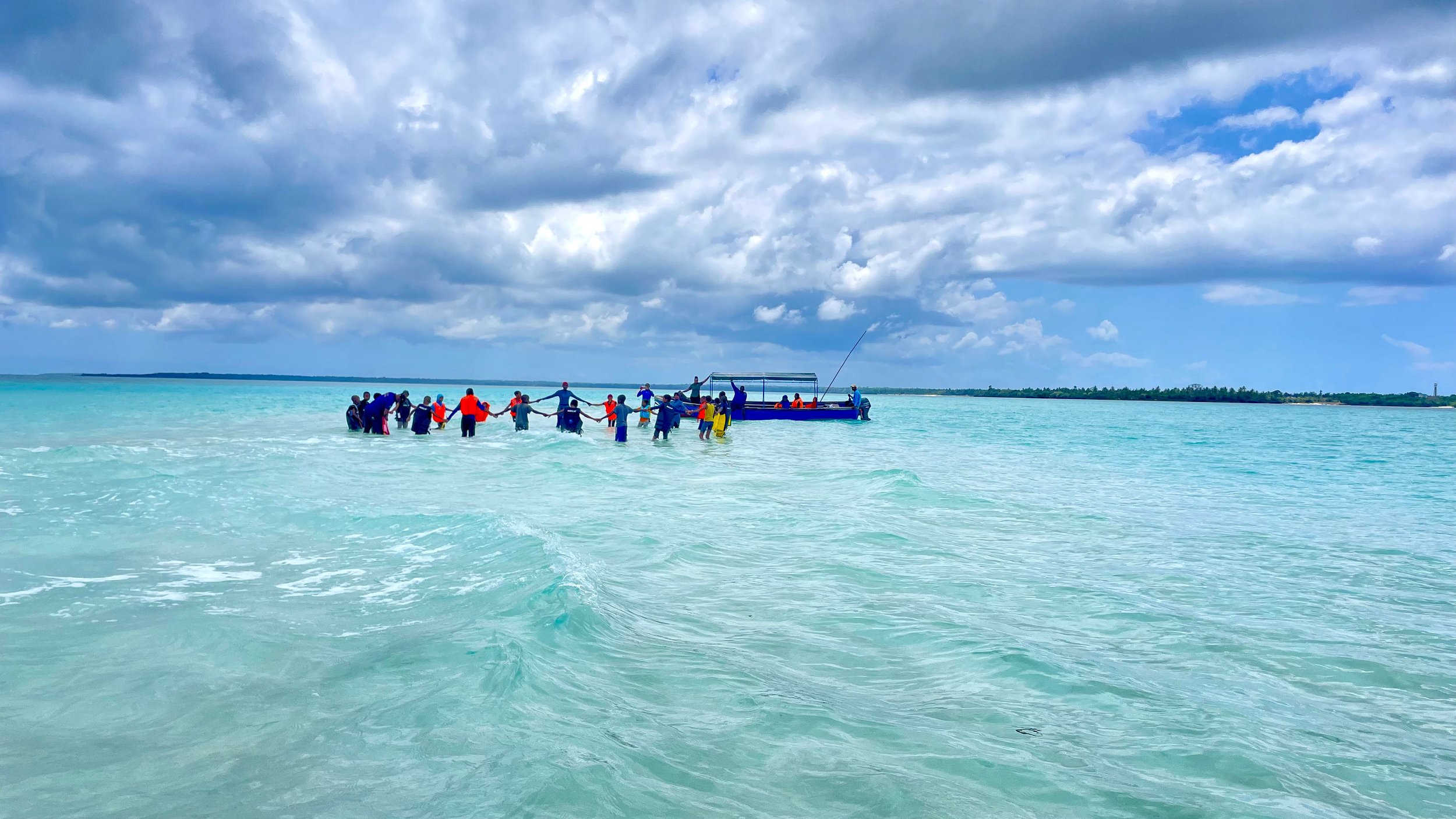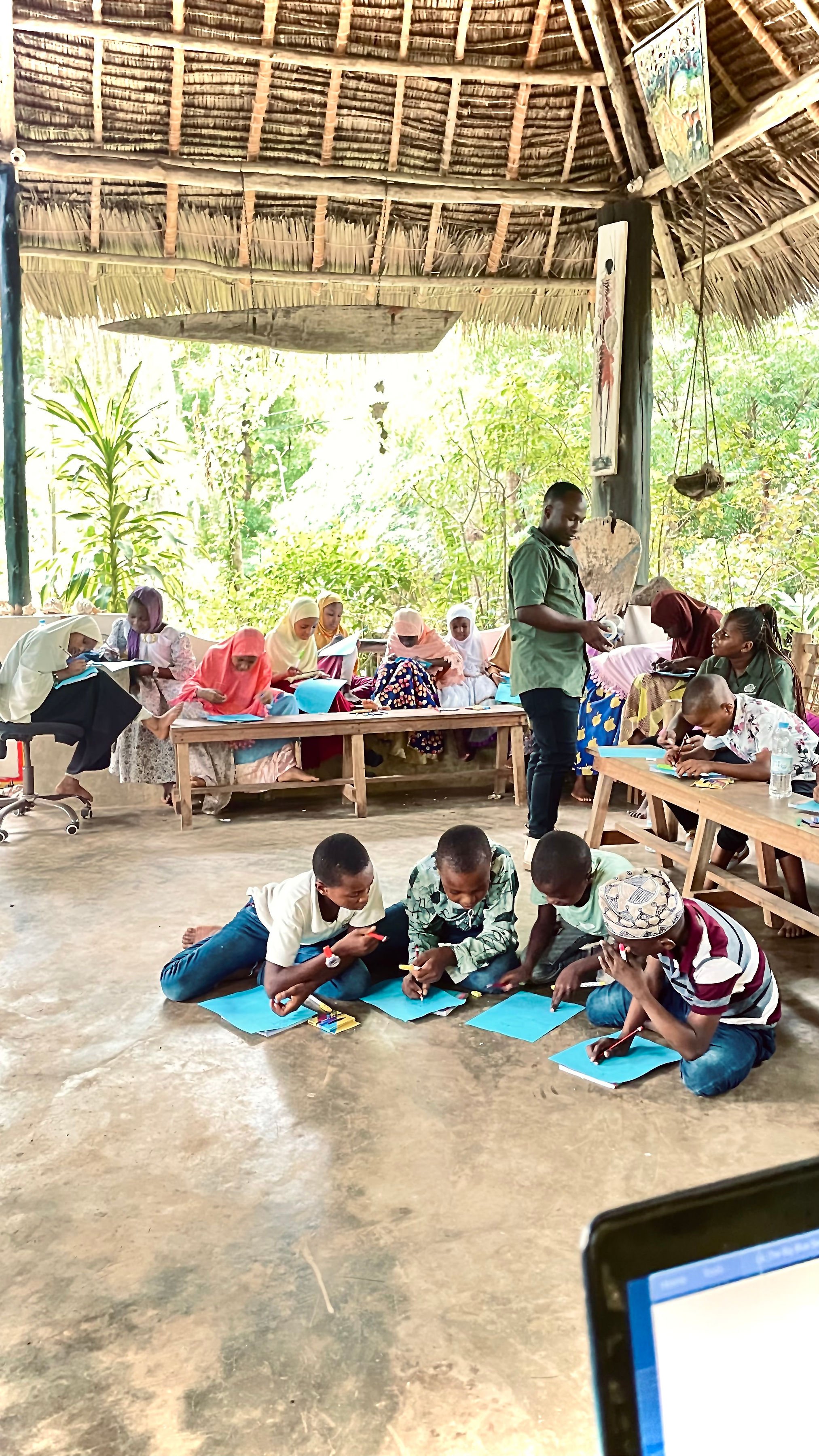LESSONS IN CONSERVATION
Lessons in Conservation is a hands-on environmental education program for youth in Makangale village, designed to inspire a lasting connection to nature through interactive lessons and excursions tied to local ecosystems and tourism. ATCF funding will support the construction of a permanent open-air classroom and essential course costs, ensuring long-term community impact and environmental stewardship on northern Pemba Island.
The Issue:
Pemba Island, off the coast of Tanzania, is home to vibrant coral reefs, mangrove forests, and a rich cultural heritage tied to the ocean. Yet this biodiversity and way of life are increasingly threatened. Overfishing, destructive fishing techniques, rising sea temperatures, coral bleaching, deforestation, and waste mismanagement are degrading both land and sea ecosystems. Compounding these environmental pressures is a lack of structured environmental education—particularly for youth—leaving communities ill-equipped to safeguard their natural resources or understand their long-term value.
Generational traditions, such as fishing, are no longer sustainable under current ecological stressors, yet most young people grow up without exposure to conservation practices or sustainable alternatives. Without meaningful and accessible education, the next generation risks inheriting ecosystems in collapse. Additionally, the community’s growing reliance on tourism brings both opportunity and strain; while it creates new income streams, it also puts further pressure on the very ecosystems travelers come to experience. Education must become the bridge between ecological stewardship and community resilience.
Grant Award Use:
ATCF funding will enable the Kwanini Foundation to expand its Lessons in Conservation program—an environmental education initiative designed to inspire youth in Makangale village to become stewards of their island’s ecosystems. Specifically, the grant will fund the construction of a permanent, open-air classroom with a kitchenette and restroom, creating a dedicated space for learning that is safe, engaging, and rooted in the community. This new venue is essential for scaling the program after losing access to their previous space.
The funding will also cover the program’s direct costs, including locally prepared meals, transportation for field excursions, teaching materials, safety gear, and the wages of local facilitators. These investments will allow the Kwanini Foundation to reach every 10- to 11-year-old in the village—approximately 350 children annually—through a hands-on, four-day curriculum that blends classroom learning with immersive outdoor activities like snorkeling, mangrove walks, and eco-brick creation. Beyond education, the grant will create income-generating opportunities for local women, fishermen, and guides, ensuring the program supports both conservation outcomes and community well-being. The classroom will also serve as a long-term asset for environmental education, storytelling, and cross-cultural exchange.
Intended Impacts:
Over the next 12 months, the Lessons in Conservation program aims to achieve the following outcomes:
Youth Reached: Every child aged 10–11 in Makangale village—roughly 350 students—will participate in the 4-day course, fostering early environmental literacy and creating a new generation of conservation-minded youth.
Increased Environmental Awareness: Through pre- and post-course evaluations, students will demonstrate a measurable increase in knowledge of key conservation topics such as sustainable fishing, waste reduction, climate change, and marine biodiversity.
Permanent Education Space: Construction of a dedicated open-air classroom, including a kitchenette and bathroom, providing a long-term, community-owned venue for environmental learning and conservation storytelling.
Local Employment and Capacity Building: At least 10 community members—including fishermen, women, and young facilitators—will be trained and hired to support the program, reinforcing local ownership and diversifying economic opportunities.
Community Integration and Expansion Potential: The program will deepen its roots in Makangale and lay the groundwork for replication in neighboring communities, using the model as a catalyst for broader regional awareness, resilience, and conservation impact.
These milestones will be tracked through attendance records, evaluation data, photo documentation, community feedback, and construction progress reports. Together, they reflect the project’s commitment to biodiversity protection, climate resilience, and community empowerment.



